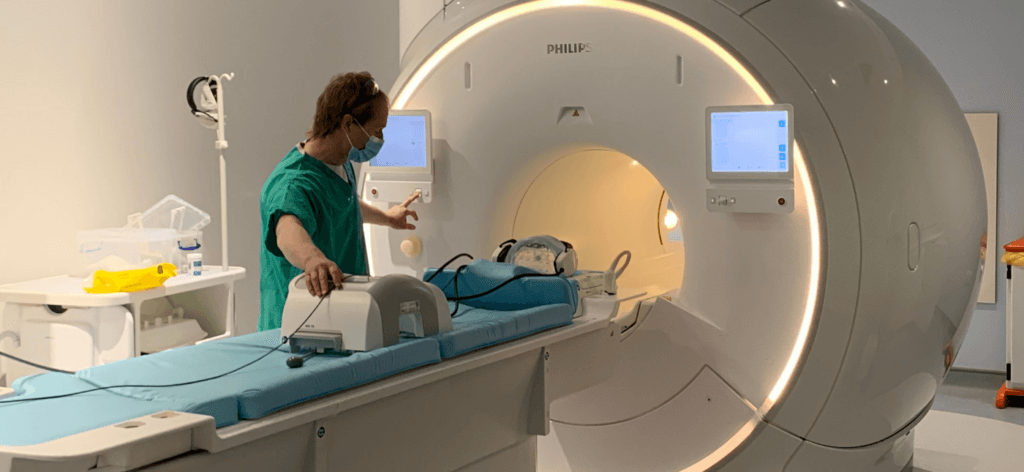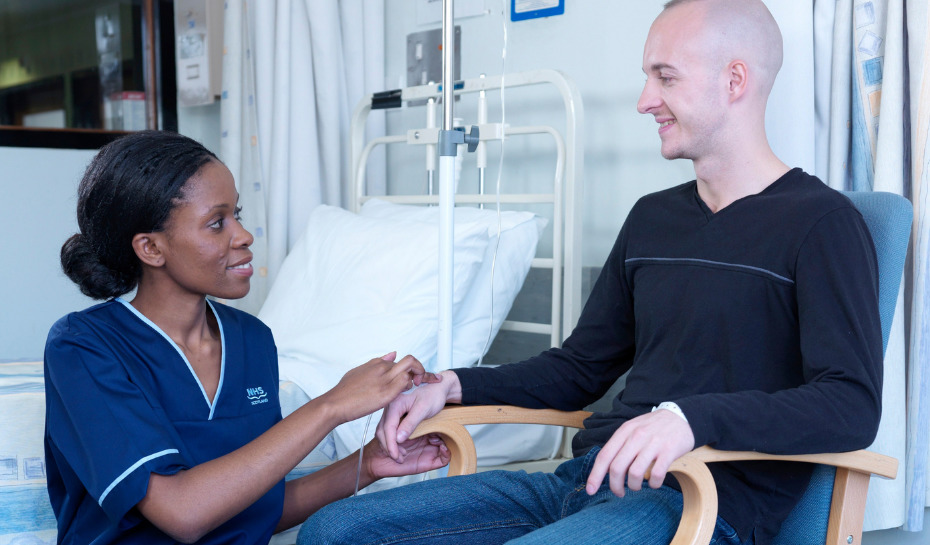23 May 2022
Developing And Improving Patient Safety Through Better Communication During MRI Scanning
Tagged by

Thanks to funding received from NHS Lothian Charity, the Department of Medical Physics has been able to buy a piece of specialist equipment to help improve patient communication by reducing noise levels during MRI scanning.
MRI scanners are noisy during normal operation, typically greater than 100 decibels which is the equivalent to a plane taking off. Patients therefore have to wear disposable earplugs and headphones to protect their hearing. These hearing protection measures not only reduce the sound level of the scanner, but also the sound of the intercom instructions from the MRI Radiographer carrying out the scan. This can often mean that patients cannot hear (and therefore follow) the instructions given by the radiographer. This problem is also exacerbated for elderly and hearing-impaired patients as they cannot wear hearing aids during the scan.
As a result, scans may need to be aborted or repeated which not only reduces the scanning capacity of the radiographers, but can also cause increased anxiety for patients who are already nervous about having to undergo a scan.
The department is therefore investigating ways in which they can make modifications to headphones to reduce background scanner noise to lower levels, removing the need for disposable ear plugs and improving communication between patient and radiographer.
In order to monitor the noise levels following minor modifications to the headphones, and ensure they are at a safe and comfortable level, the team applied for funding for a sound level meter which could be used in MRI scanning rooms. Normal monitoring equipment can often malfunction due to the magnetic fields in the scanning room but the Optoacoustics MR Conditional Sound Level Meter has been specifically developed for this purpose. This piece of specialist equipment will allow the team to accurately measure the sound levels experienced by patients during an MRI examination to determine whether modifications have had a positive impact on noise reduction.
If the modifications successfully reduce the noise levels to a safe and comfortable level this would remove the need for earplugs to be used as well as the headphones to protect hearing. This will not only mean better communication between patient and radiographer but also a reduction in the number and cost of disposable ear plugs. Improved communication will also save time during each scan. Even saving a few minutes per patient across NHS Lothian’s MRI scanning capacity would have a positive impact on the number of MRI scans that could be conducted.
This project will run from September 2020 to August 2021 during which time sound level measurements will be carried out all NHS Lothian MRI scanners to provide quantitative feedback on the minor headphone modifications and their performance, as well as how this has enhanced patient experience by improving communication and reducing the discomfort and anxiety associated with background scanner noise.
